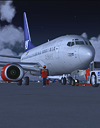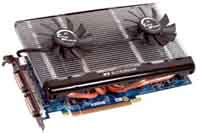STOP!!!!!
BE VERY CAREFULL WHEN DEFRAGGING AFTER A SERIOUS PROBLEM.
It can seriously mess up your system ... so please consult an expert (you know who I mean) before proceeding.
A defrag messed up my rig pretty bad ... I'm still in the process of recovery.
It was not the defrag that trashed your hard drive although it was the defrag that brought the problem to the surface.
Your issue was because you started with a 150GB hard disk and an older version (very old) of WindowsXP SP1 which did not contain the updated files for ATAPI, 48-bit LBA support and cache dump.
http://support.microsoft.com/kb/303013The hard drive was not partitioned to below 137GB before the install which means anything written to the drive outside the 137GB barrier forced data corruption.
In other words, your system would not support hard drives larger than 137GB even with SP2 installed because the drive was not partitioned below 137GB prior to installing your older version of XPSP1. The file allocation table was corrupt from the start. The corruption problems started before you even updated to SP2, which in turn did not update correctly because the allocation table was trashed from the beginning.
When the system went through the NAME defrag, O&O moved files around and at some point moved system files to the area outside the 137GB limit. Good defrag programs move files to empty areas of the disk while they are shuffling everything around and putting them all back in order. Also,
Your system rebooted after the defrag and sat at the sign in screen for several hours. It probably entered a power down state at which time you were doubly bit by the cache bug.
http://support.microsoft.com/kb/331958Assuming my assessment is correct and the hard drive itself is not defective, the solution is to either format the drive to a single 135GB partition, leaving the rest of the space unallocated until after SP2 and all the patches are fully installed, and then use partition software to recover the unallocated space
OR
Obtain a copy of WindowsXP with SP2 already integrated into it.
Solution #2 is the best way to go.
and note that the DRIVERS for the disk controller MUST be 48-bit LBA compliant. Most are however there are some older motherboards and drivers floating around out there.
If your windows install does not see any more than 137GB of disk when you have a 150+ hard drive installed, you do not have LBA support.
----------------------------
As for defragging fixing boot errors... that
Last edited by NicksFXHouse on Thu Oct 12, 2006 11:31 am, edited 1 time in total.


















 Mainboard: Asus P5K-Premium, CPU=Intel E6850 @ x8x450fsb 3.6ghz, RAM: 4gb PC8500 Team Dark, Video: NV8800GT, HDD: 2x1Tb Samsung F3 RAID-0 + 1Tb F3, PSU: Antec 550 Basiq, OS: Win7x64, Display: 24&
Mainboard: Asus P5K-Premium, CPU=Intel E6850 @ x8x450fsb 3.6ghz, RAM: 4gb PC8500 Team Dark, Video: NV8800GT, HDD: 2x1Tb Samsung F3 RAID-0 + 1Tb F3, PSU: Antec 550 Basiq, OS: Win7x64, Display: 24&




